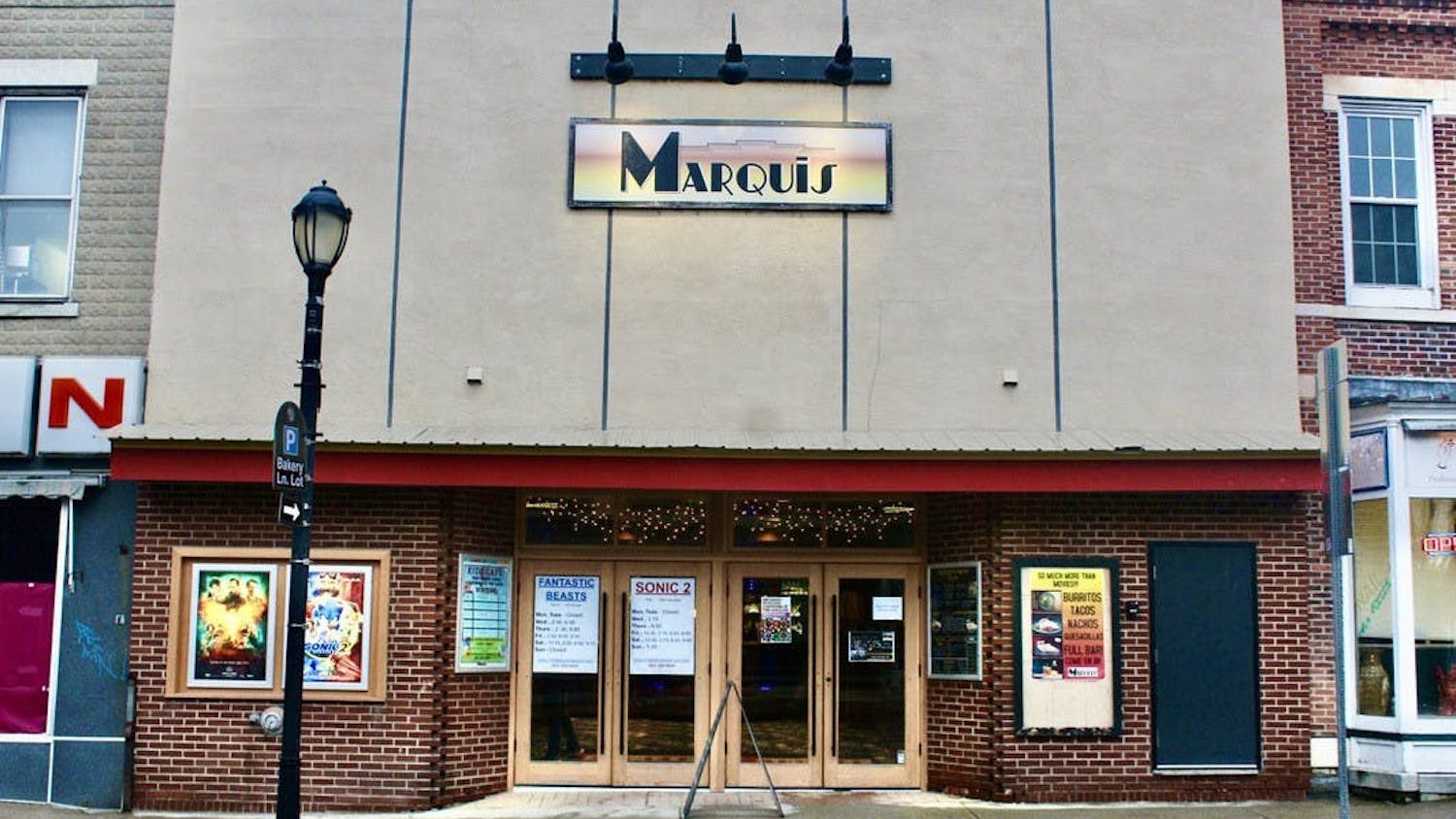From jewelry from Kenya’s Spice Coast to beaded works from India, handmade goods from all over the world made an appearance at the 19th annual craft fair, held at the Middlebury Memorial Baptist Church on Friday, Nov. 19 and Saturday, Nov. 20. All proceeds from the sales benefit Ten Thousand Villages, a nonprofit organization and one of the founding members of the World Fair Trade Organization (WFTO). Founded in 1946, Ten Thousand Villages provides a North American market and fair wages to artisans from all over the world. Sales generated pay for food, education, housing and healthcare needs of the producers. For lucky customers in Middlebury, however, the craft fair is a chance to find unique items and support a meaningful cause, as well. Because it is always held the weekend before Thanksgiving, many also get a head start on holiday shopping.
Jen Nuceder, accreditation support coordinator in the Office on Institutional Research at the College, saw the fair as the perfect opportunity to “find some interesting, different gift ideas.” A resident of Salisbury, Vt., Nuceder was particularly intrigued by the handcrafted musical instruments she bought for her children, who participate in a playgroup at the church.
“It is great to be able to have these kinds of opportunities to see crafts from all over the world in our little town,” said Nuceder, who noted that not many other rural areas get as much international influence as Middlebury.
Others craft fair-goers were not only excited that their contributions would benefit people from around the world, but they were also impressed by the quality of the goods.
“What’s most important to me is how it seems like things are made by hand and so the object has a little more soul to it than things that are mass-produced,” said Ripton, Vt. resident Sarah Wesson, who has attended the craft fair in previous years as well.
Wesson also said that many of the items are made from recycled materials. According to the organization’s website (http://www.tenthousandvillages.com), Ten Thousand Villages “encourages artisan partners to use environmentally friendly processes, sustainable natural resources and recycled materials to ensure each product offered has been crafted responsibly.”
The fair organization is fairly simple. Because the church has been holding the sale for nearly two decades, Ten Thousand Villages has the group in its database. Eight weeks before the sale, the organization contacts the church and sends a variety of goods it wishes to sell. Other nonprofits interested in holding a festival sale for the first time contact Ten Thousand Villages to request goods. The church doesn’t pick what items it receives, according to Kathy Jewett, associate in science instruction in chemistry/biochemistry at the College and coordinator of the craft fair for the past 18 years. Goods usually encompass a broad range and include jewelry, musical instruments, woven baskets and decorative home items like candle holders. This year, there were finger puppets, birdhouses, carved wooden boxes and wire children’s toys, as well.

Though the church does not set a sales goal for the fair, Jewett said that to ensure money gets back to the artisans, the church aims to sell 60 percent of the goods it receives. All items left over are returned back to Ten Thousand Villages. Because of the nature of the organization’s business, shipping is a large cost.
“We try to do the best job we can to publicize and get out to the broadest audience, and then the rest just happens,” said Jewett, who promoted the event by contacting local churches and advertising in The Addison Independent. Jewett also noted that Ten Thousand Villages has gotten better at advertising, due to their website improvements.
The fair has been held at many different locations over the years, including Weybridge Elementary School, the Middlebury Inn and the College itself. It is now in the church’s basement, as it is a bigger space and is handicapped-accessible. Though the fair was previously held on Saturday only, three years ago organizers introduced a Friday night sale as well, as many customers wanted extended hours.
Volunteers include church members and even college students.
“Many of our youth grew up around [the fair],” said Laura Sturtevant, a church member who has been volunteering at the event nearly every year since it began. One of Sturtevant’s daughters was also volunteering, as was Sarah King ’12.
For the past three years, King, who is from Texas, has volunteered at the Ten Thousand Village’s store in Houston. In addition to setting up festival sales with nonprofit groups (like the church), Ten Thousand Villages also has retail locations across the country. King said that many of these stores have one or two steady managers, but that a strong volunteer network makes up most of the staff. The store in Houston, for example, has approximately 80 volunteers who work a certain number of hours each month.
“It’s a nice way to involve shoppers,” said King.
For the church, which does not profit off of the event, the fair is simply another way it can help people across the globe.
“The church has a very strong global vision,” said Sturtevant, who commented that volunteers have also worked in Haiti, Romania and inner cities across the U.S. She said that the fair allowed for many church members who can’t travel to contribute to the church’s global mission. As another project, members also volunteer at the annual Crop Walk. Sturtevant said that these local outreaches are easy to do and can have a large, positive effect on others.
“For the impact we have, it is a very doable commitment,” said Sturtevant.
Craft fair supports fair wages
Comments



